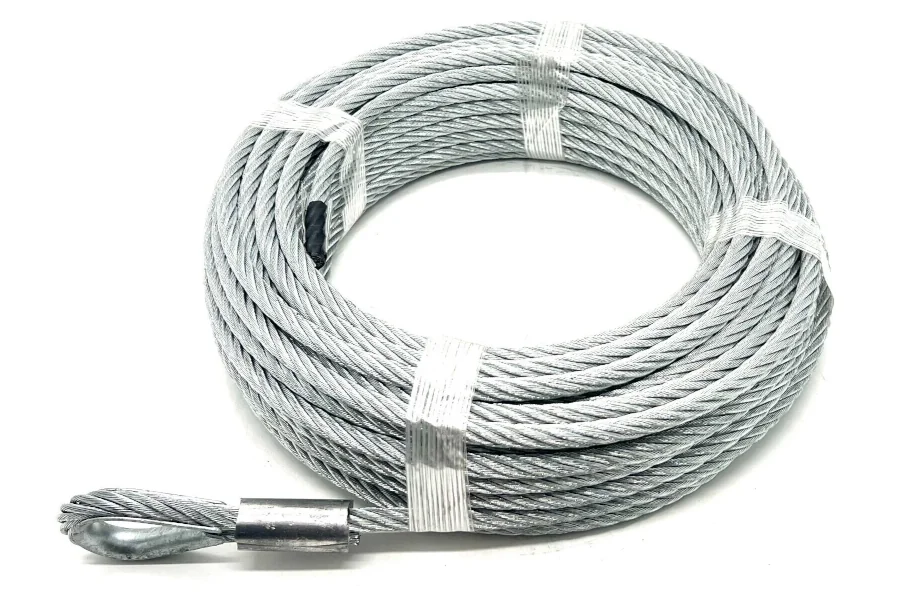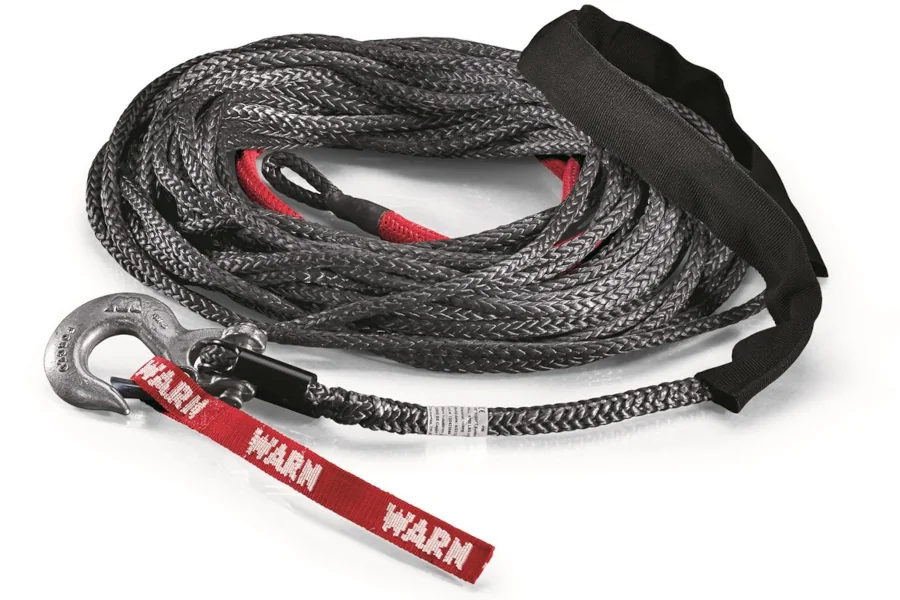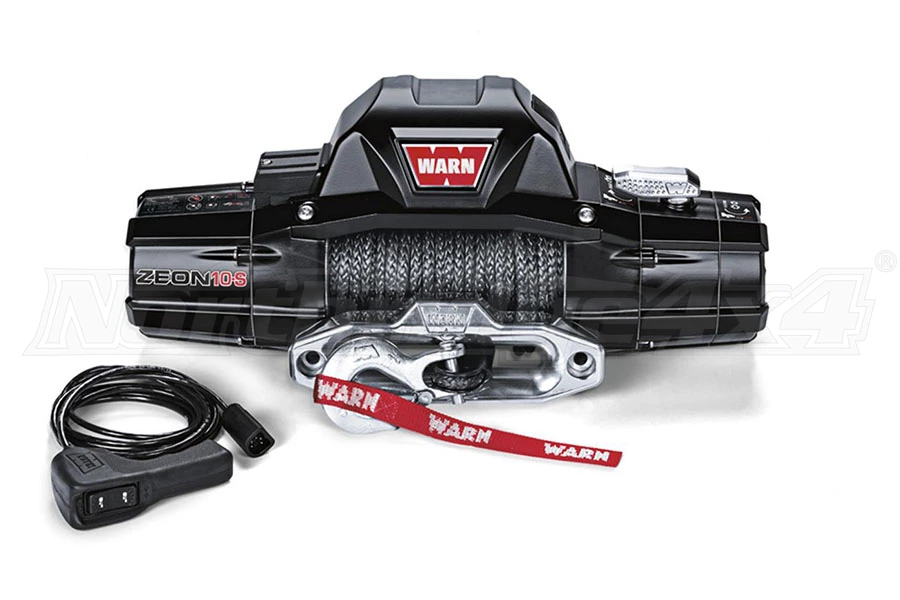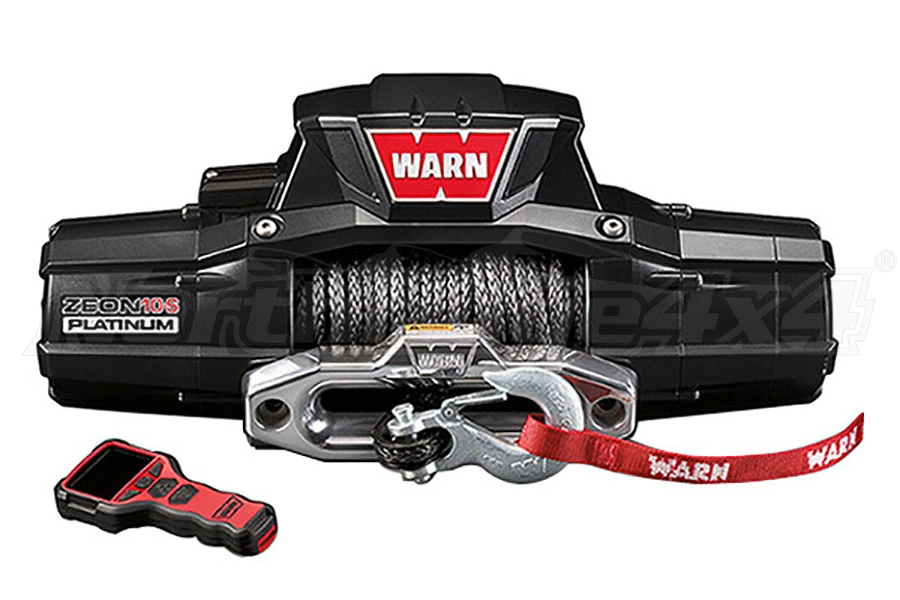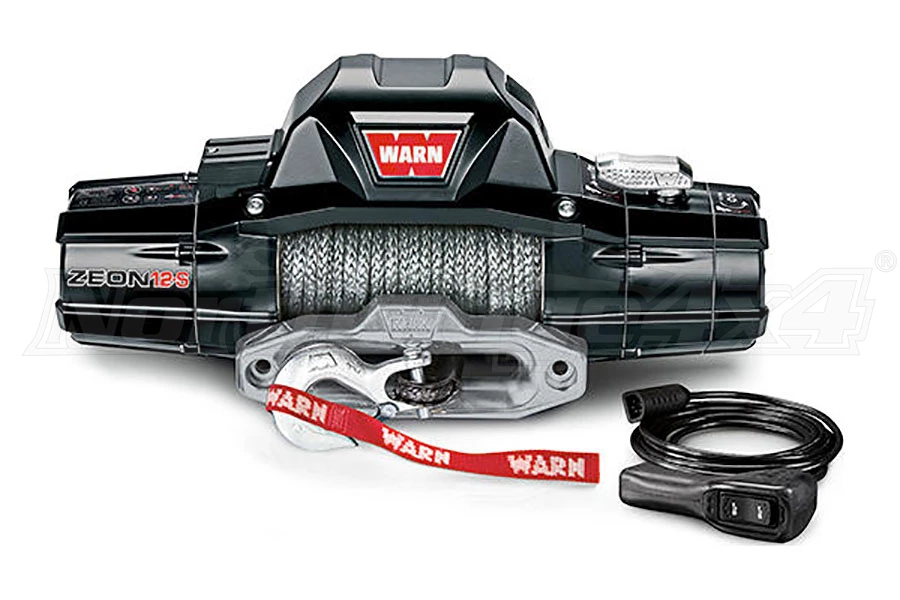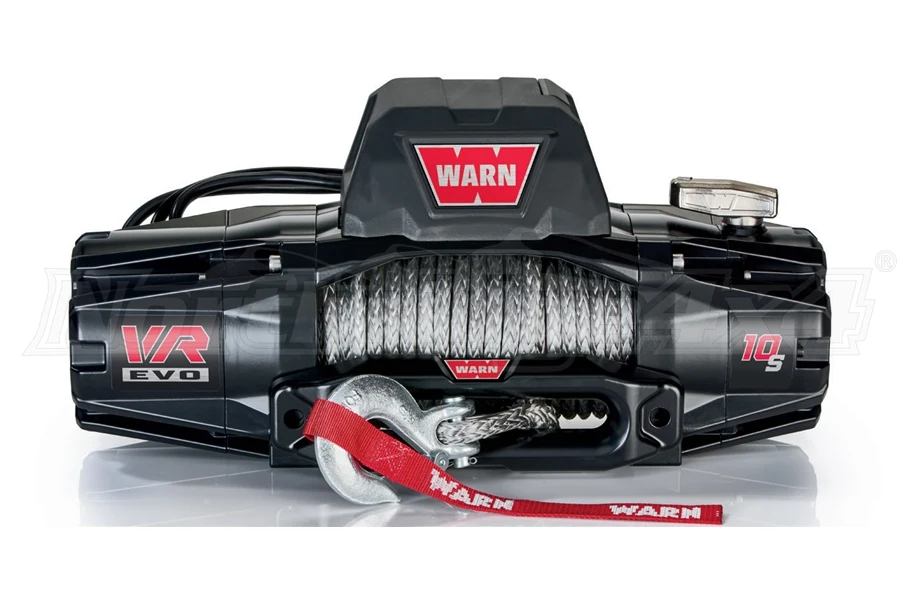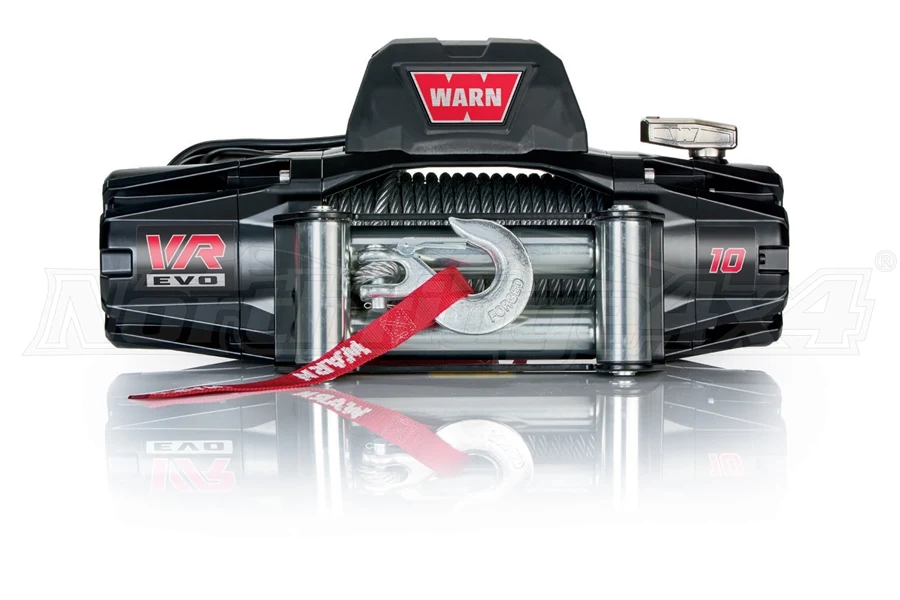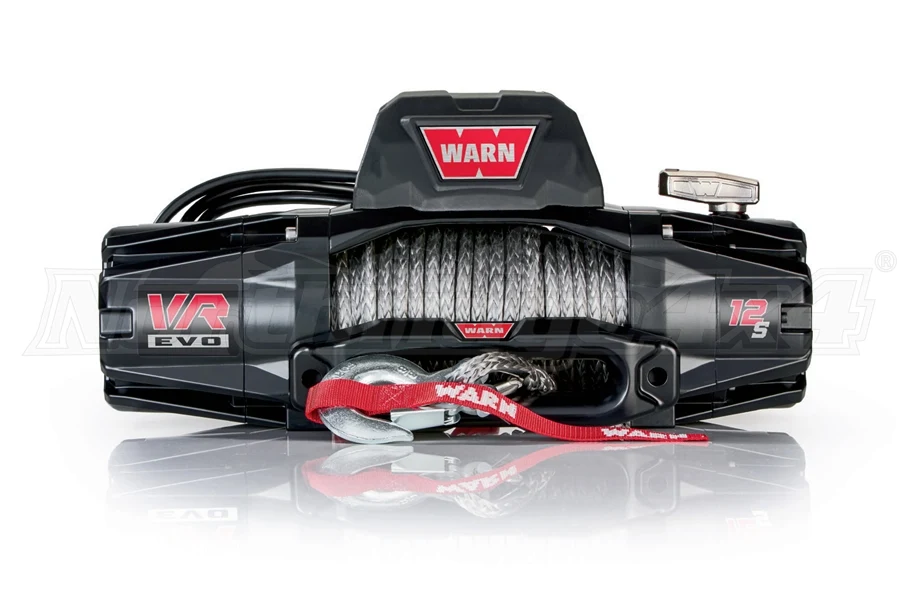We can all agree that equipping your Jeep, Toyota, Bronco or Truck with a recovery winch is a great idea. However, there is still another choice to be made: Steel or Synthetic winch line? This choice often causes fiery debate in 4x4 communities and for good reason, the choice isnt exactly clear cut. Your choice of winch line material comes down to what's right for you and your off-road rig. With all that being said, lets breakdown the differences to help settle this debate once and for all!
The Basics
While both winch line material choices accomplish the same goal of recovering vehicles, its important to understand the fundamental differences between the two materials.
- Made from aircraft-grade steel.
- Highly abrasion resistant.
- Used for decades as the industry standard.
- Heavier, which can impact front-end weight and suspension more than synthetic.
- Made from Dyneema or similar high-strength fibers.
- Mucher lighter, helping to shave weight off of your front end.
- Easier to handle, flexible and safer under load.
- This choice is the most common on modern off-road setups.
Strength & Safety Considerations
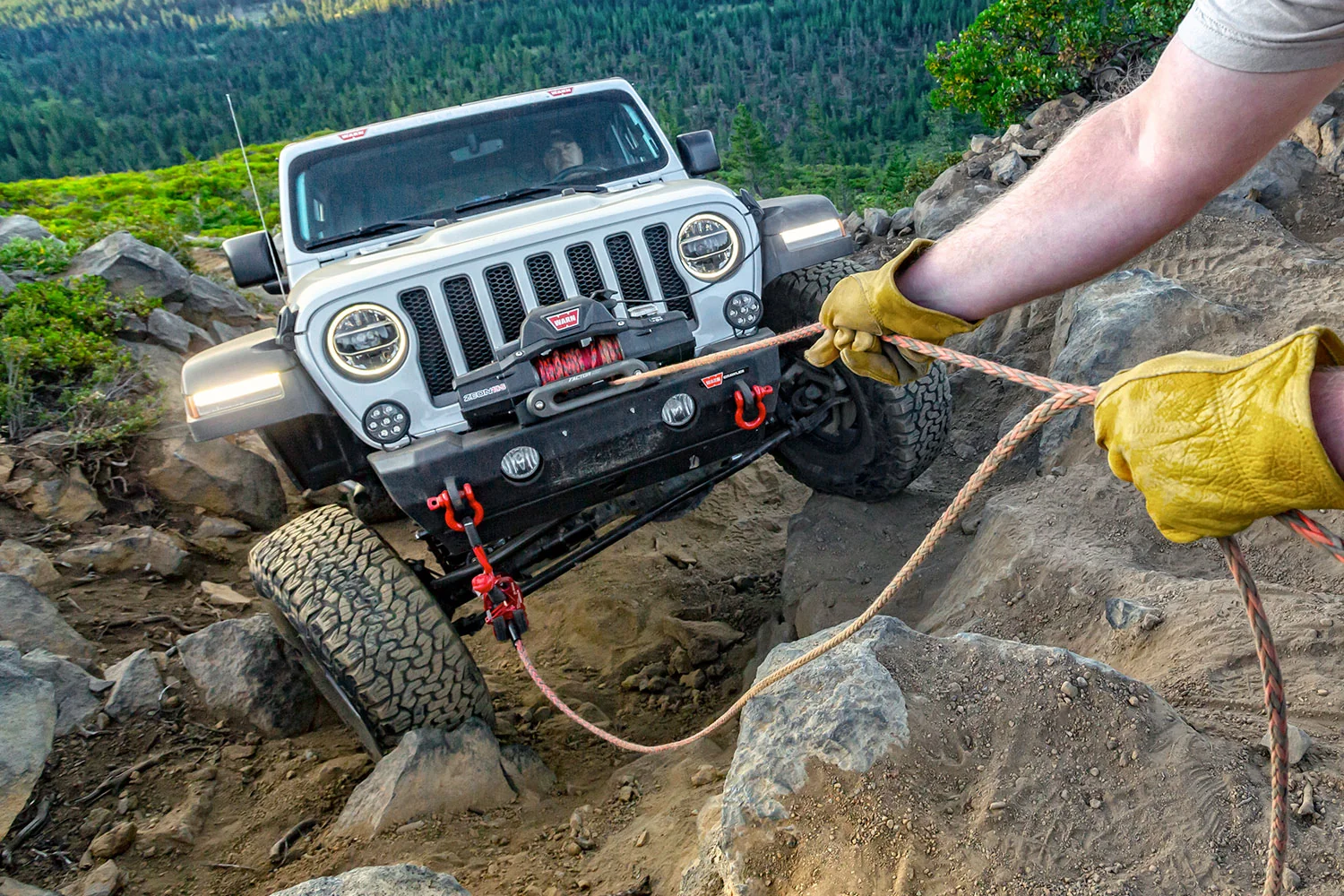
Strength
It may seem like the choice is clear when it comes to which line material will provide the highest levels of strength. What may suprise some is that synthetic winch line actually has a higher breaking strength than steel. However, synthetic is more prone to physical line damage if its dragged across rough terrain such as rocks.
Safety Considerations
This is where the two material choices show significant differences. Without question, Synthetic Rope is safer to use than steel cable. The reasons include:
- Steel cable stores energy when under load and can whip dangerously if it breaks.
- In comparision, Synthetic cable stores less energy under load and will drop to the ground much sooner than steel.
- Gloves are essential for handling steel cable. Steel cable can develop sharp frays which can cut your hands.
Its important to remember that no matter what winch line option you go with, safety should always be a top priority while recovering a vehicle with a winch. Using a winch line damper ensures if there is a snap, it will be forced to the ground by the damper before it can snap back. Winch gloves are also needed for handling either types of winch line while in a recovery scenario, whether to prevent rope burn or cuts from metal cable, its always an excellent idea to protect your hands!
Durability & Maintenance
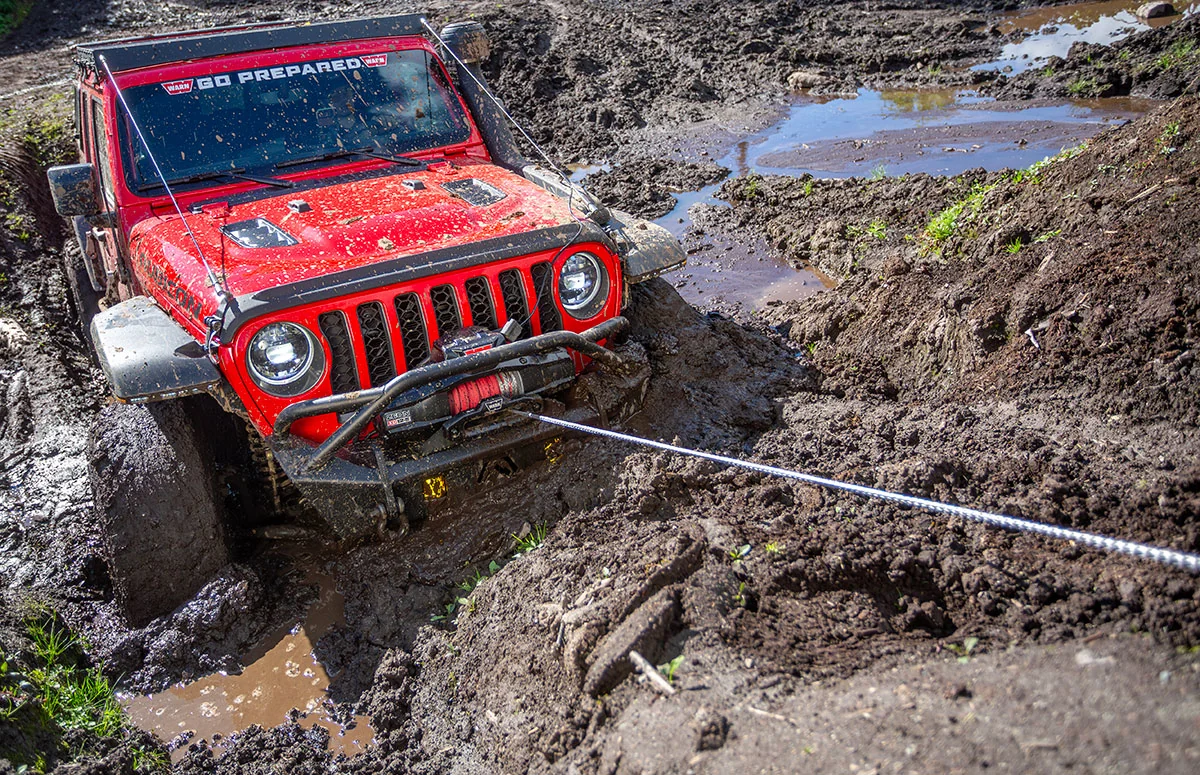
Both steel and synthetic cables require maintenance to keep them functioning properly and safe to use. How well and often you maintain your winch cable can impact its long term durability, so keeping them well maintained is crucial.
Steel
- Steel cable needs to be cleaned and lubricated if it gets dirty to prevent rust, especially in rust prone climates.
- Much less suseptable to UV damage compared to synthetic cable.
- Steel cable can develop frays and kinks in the line.
- Spooling back up into the winch is trickier as the steel cable can kink up.
Synthetic
- Synthetic winch line should be cleaned after use to prevent dirt and grit from breaking down the rope fibers over time.
- Suspetable to UV damage, especially if exposed to hot sunlight for extended periods.
- Synthetic line is prone to being damaged if dragged across off-road terrain such as rocks and trees.
- Easier to spool back up onto the winch drum after use.
In general, steel cable is more durable and can last longer than synthetic line, However, steel cable requires more involved maintenance to keep it in tip top condition. With synthetic line as long as you wash it off after it gets dirty and keep it out of prolonged sunlight, it can last you many years.
Longevity & Cost
Outfitting your 4x4 with a winch can be a big investment and saving a bit of cash can help you save up for your next big modification. Additionally, longevity of your winch line can be a determining factor especially if you plan on really putting your winch to frequent use.
Steel cable is generally cheaper and can last longer than synthetic line. However, the added cost of synthetic may be worth it to you if you value ease of use, much safer operation and lightweight construction.
Switching to Synthetic Line
Even if you're already equipped with a winch that is spooled up with steel cable, you can easily swap that line out with synthetic cable. To swap to synthetic cable you'll need proper sized line for your winch and a hawse fairlead to replace the roller fairlead which is designed for steel cable. You can also swap out your synthetic line with steel cable if you prefer.
What Should You Choose?
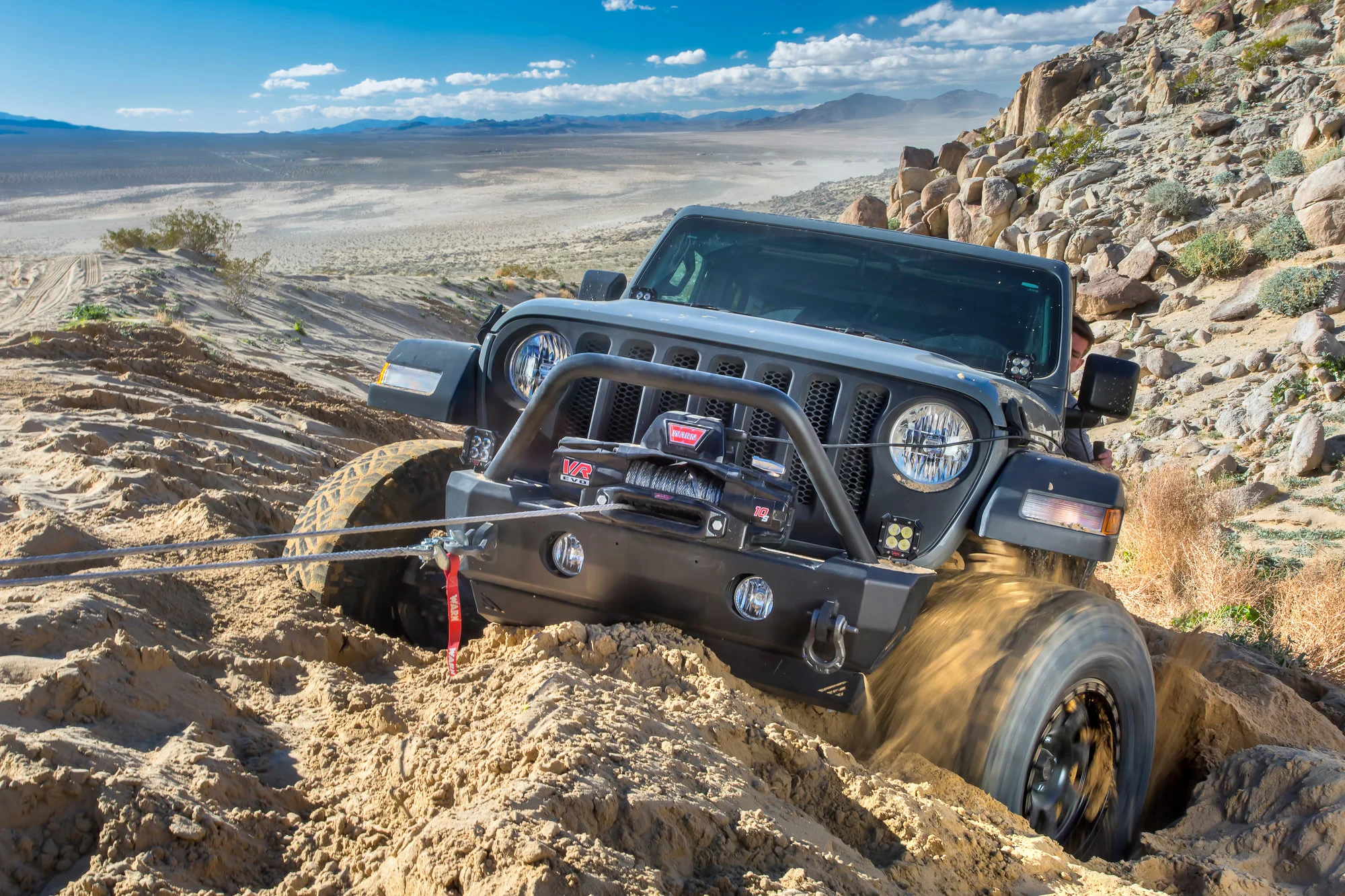
Choose Steel If:
-
You want a "tried and true" budget-friendly setup.
-
You want maximum durability.
Choose Synthetic If:
- Safety is a top concern.
- You value ease of use and weight savings.
- Ease of maintenance.
My Conclusion:
I believe Synthetic winch line is perfect for just about every off-roader out there, from hardcore rock crawlers to weekend warriors. I think the additional price of a synthetic winch line is well justified with just how easy it is to use, the lightweight construction and added safety benefits over steel cable. While synthetic winch line may be realitively new in the off-road world, I think its more than proven itself as an excellent option. All this isn't to say that steel cable shouldn't be considered as an option, it's still a dependable and strong option for your winch, but I prefer synthetic!
Need a Winch?
All this talk about winch lines doesn't matter all that much if you don't have a recovery winch for your 4x4! If you're in need of a top-tier recovery winch, look no further!

